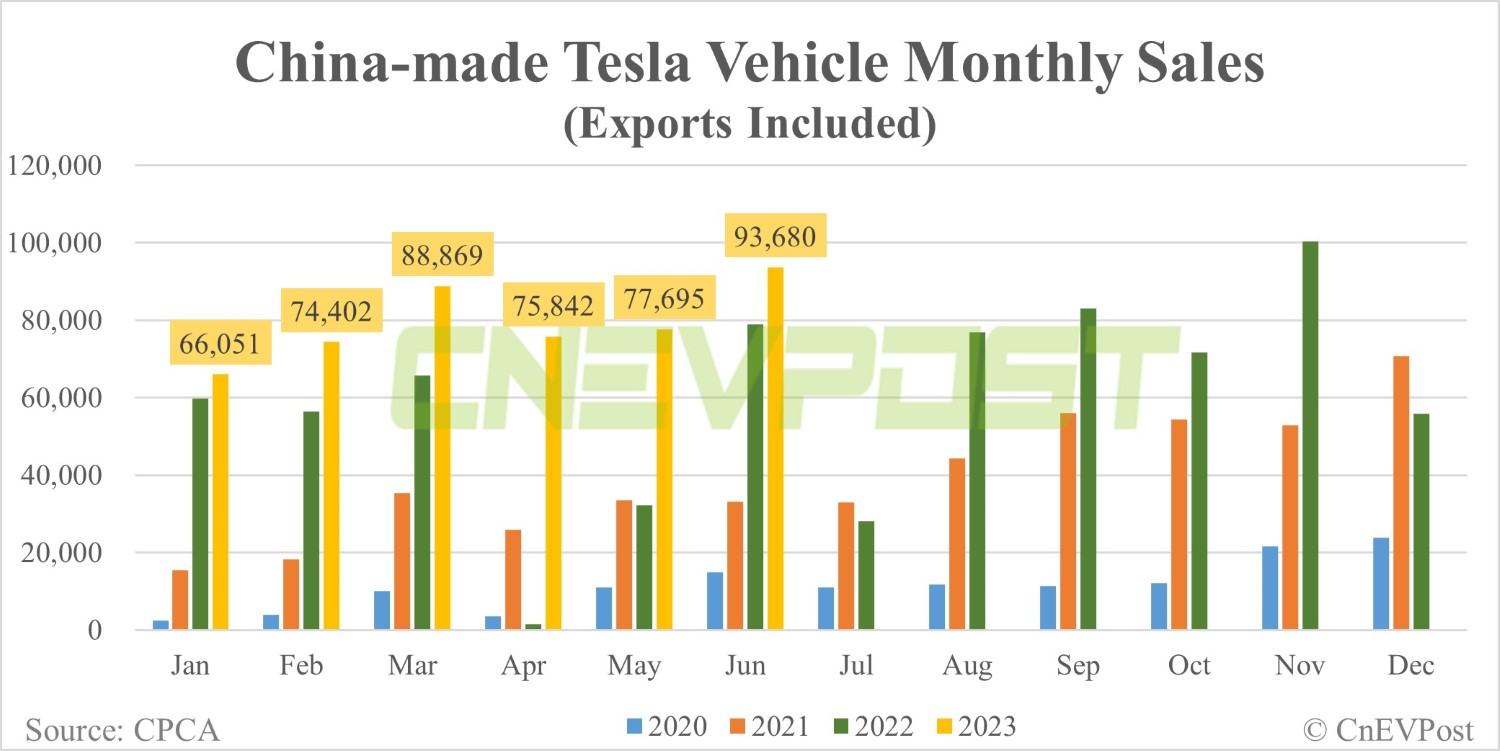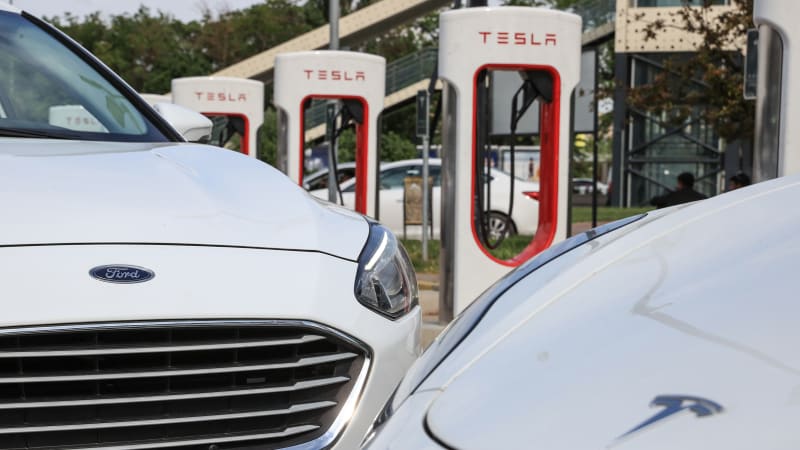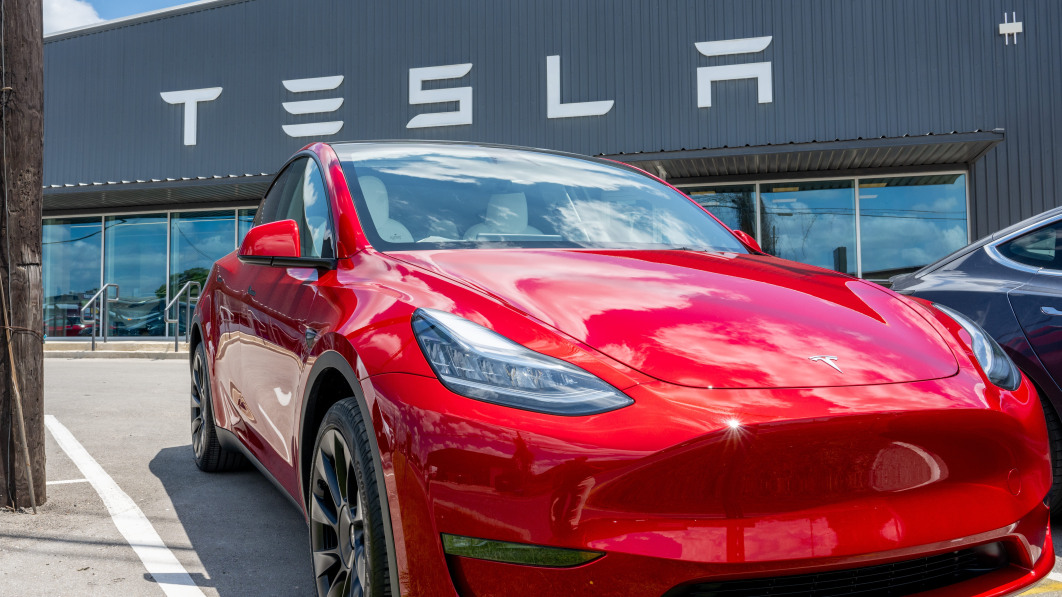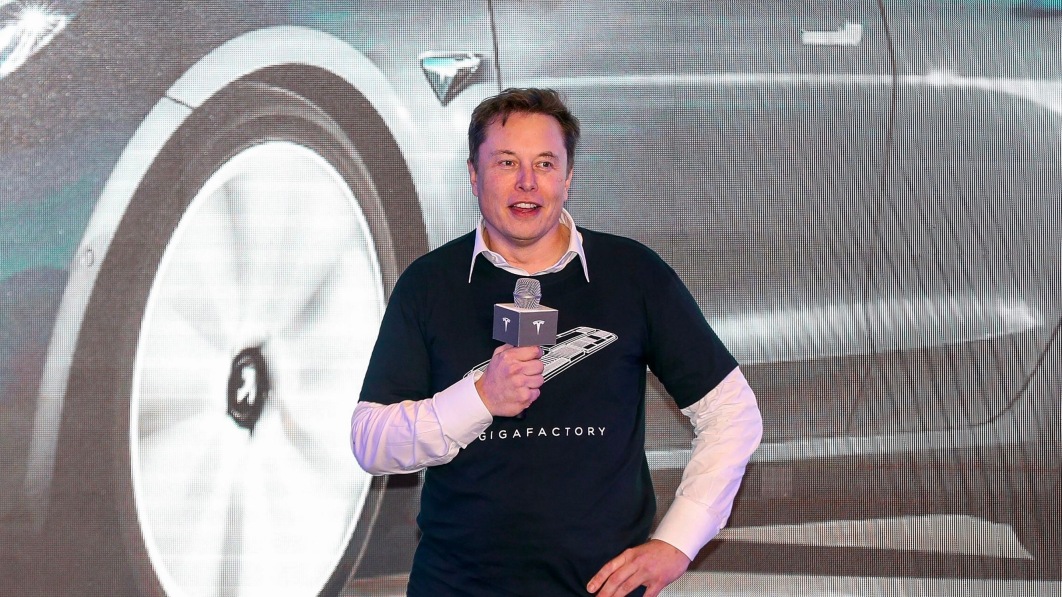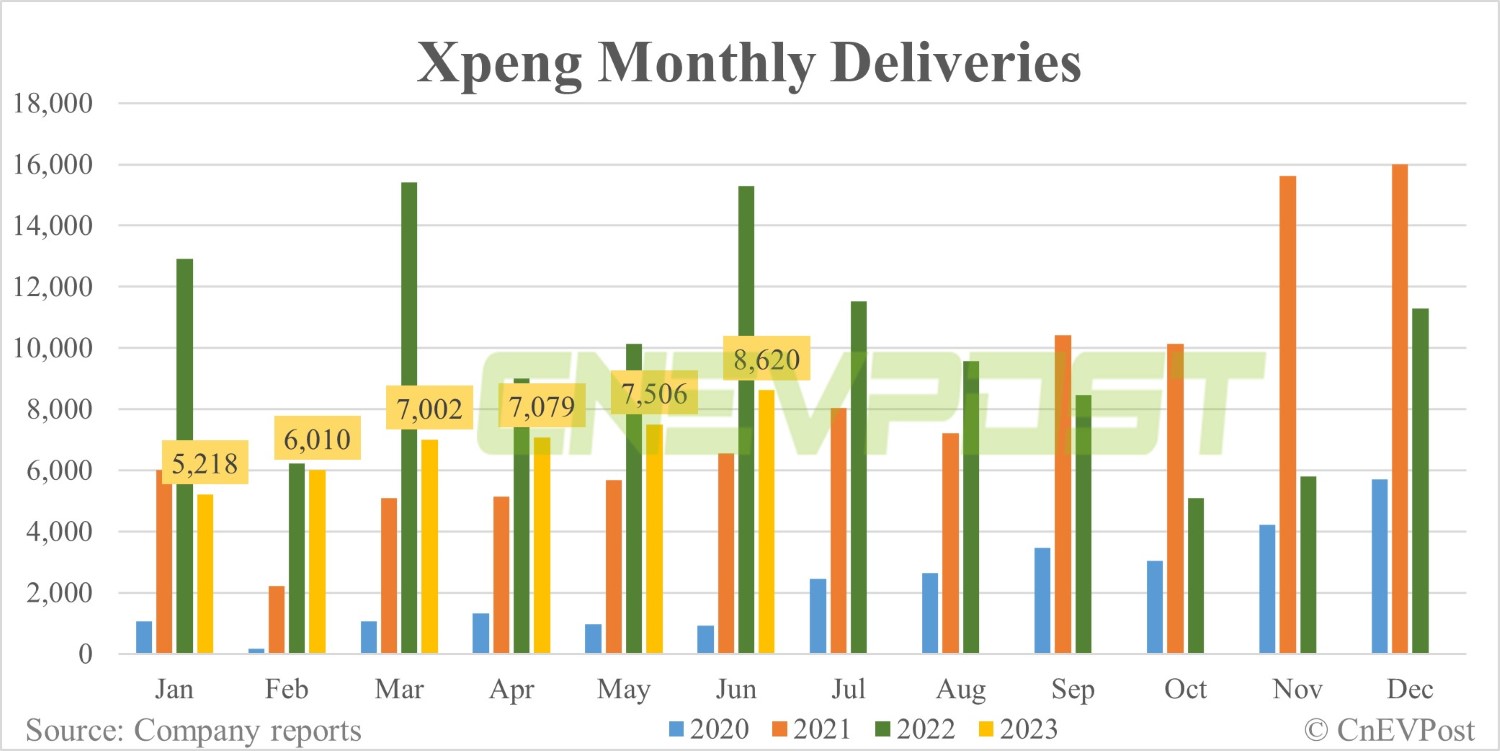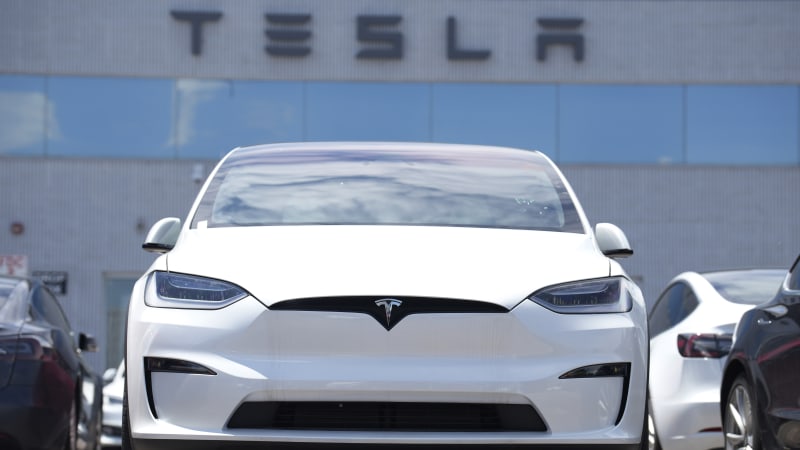Denza has delivered more than 10,000 vehicles for four consecutive months, and with the N7 SUV targeting a larger market, it is expected to gain further momentum.

BYD's (OTCMKTS: BYDDY) joint venture with Mercedes-Benz, Denza, which was unknown in China until a few years ago, gained momentum as BYD took a controlling stake in the company last year. Now, Denza is looking to build further on it.
Denza officially launched the Denza N7 at an event in Beijing on Monday, and the electric SUV targets the market where the Tesla Model Y sits with a starting price of RMB 301,800 ($41,680).
The Denza N7 is a 5-seat mid-size SUV with a length, width and height of 4,860 mm, 1,935 mm and 1,602 mm respectively, and a wheelbase of 2,940 mm.
For comparison, the Tesla Model Y is slightly smaller, measuring 4,750 mm in length, 1,921 mm in width and 1,624 mm in height, with a wheelbase of 2,890 mm.
The Model Y is currently offered in three versions in China with starting prices of RMB 263,900, RMB 313,900 and RMB 363,900 respectively. This Tesla model was the best-selling SUV in China from January to May.

Denza was established in 2010 as a joint venture between BYD and Daimler, with each holding a 50 percent stake at the time. In February 2022, the Daimler brand was rebranded as Mercedes-Benz. BYD increased its stake in Denza to 90 percent last year.
In August 2022, Denza launched the D9 MPV, the brand's first model after the reorganization. The Denza N7 is the second model after Denza's shareholding change and its first SUV.
Before the D9 was launched, Denza had little presence in China. With the D9 providing a new option for the MPV market, Denza has become one of the top new car-making brands in China in terms of deliveries.
In June, the Denza delivered 11,058 vehicles, marking the fourth consecutive month above the 10,000-unit mark, according to data released by BYD yesterday.

It is worth noting that these sales were contributed by the D9, while MPVs traditionally have a small total addressable market in China, only about 10 percent of the market for sedan or SUV models.
In May, retail sales of sedans in China were 851,469 units, SUVs were 795,611 units, and MPVs were only 94,983 units, according to the China Passenger Car Association (CPCA).
With the launch of the N7, Denza enters a market with significantly more space and is expected to see a further increase in sales.
The Denza N7 has received more than 20,000 pre-orders since it began accepting customer reservations on April 18, said Zhao Changjiang, general manager of Denza's sales division, at the launch event.
The Denza website currently shows four versions of the N7, with starting prices of RMB 319,800, RMB 339,800, RMB 349,800 and RMB 379,800 respectively.
All four versions are equipped with DiSus-A, an intelligent air body control system, which was announced by BYD on April 10 and is similar to the air suspension currently used in many high-end vehicles.
Customers who do not need the system can see the prices be reduced by RMB 18,000, resulting in two Air versions priced at RMB 301,800 and RMB 321,800, respectively.
The Denza N7 comes standard with BYD's signature blade battery based on lithium iron phosphate chemistry, all with a capacity of 91.3 kWh.
The two least expensive of these are the rear-wheel drive models with 230 kW of peak motor power and 360 Nm of peak torque, which can sprint from 0 to 100 km/h in 6.8 seconds. They both have a CLTC range of 702 km.
The other four higher-priced versions are four-wheel-drive models with 390 kW peak battery power and 670 Nm peak torque that can sprint from 0 to 100 km/h in 3.9 seconds. They have a CLTC range of 630 km.
Like the D9, the Denza N7 supports simultaneous charging with two charging guns, up to 150 kW when using one and 230 kW when using two.

In contrast to BYD's approach, Denza began the presentation by highlighting the N7's assisted driving capabilities, saying that the model is equipped with BYD's "Eyes of the God" driver-assisted driving system for the first time.
The Denza N7's assisted driving system includes two options, a standard version and an advanced version, the latter of which will use Nvidia's Orin-X chip with 254 TOPS of computing power.
The Denza N7 with the advanced version of the assisted driving solution will receive highway pilot assisted driving capability by the end of this year, while that capability in urban areas will become available in the first quarter of next year.
Denza did not mention information about the chip supplier for the standard version of the system, which is likely to be a lower-cost solution from a local manufacturer.
Denza N7 will be available for test drives on July 4, with deliveries starting in mid-July, Zhao said at the model's launch event.
($1 = RMB 7.2410)

Denza shows interior details of new SUV N8
The post Denza launches N7 SUV to take on Tesla Model Y as brand gains momentum appeared first on CnEVPost.
For more articles, please visit CnEVPost.
